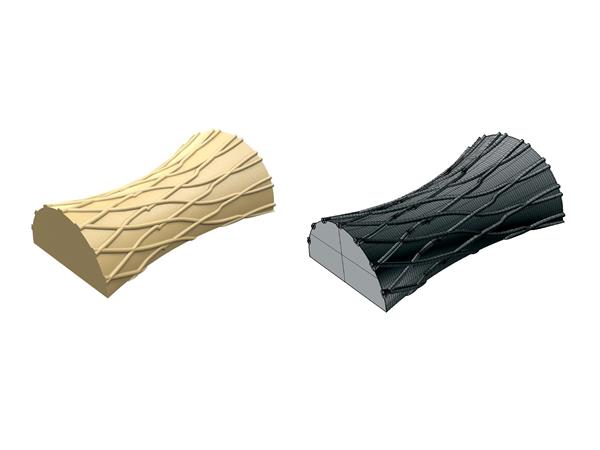Here are some tips to keep in mind as you consider different types of materials for tooling.
Wood/MDF – Fabricated Tools
Wooden tools show joins and tend to wear out more quickly than other materials. That’s why wood/MDF is best for smaller production runs, making widgets or teaching the basics of the technology as opposed to producing usable parts that can stand the test of time.
Cast or Molded Tool
Cast resins are ideal for larger production runs because resin tools can be sanded to a very smooth finish. Fiberglass can result in good quality tools but there are two key things to watch out for: a) the tool overheating and b) the need for internal support to prevent the tool from collapsing. Plaster tools are the most difficult to work with because they are fragile and can be difficult to mount.
[one_half valign=”top” animation=”none”]
3D Printing / Rapid Prototyping / Additive Manufacturing
Using 3D printing to create tools is popular in many of the fab labs we work with. It’s another great way to put students’ 3D CAD knowledge to good use. Stratasys’ line of FDM printers is great for this application because FDM technology builds parts in the same strong, stable plastics used in injection molding, CNC machining and other traditional manufacturing processes. The thermoplastics are sturdy and reliable.
[/one_half]
[one_half_last valign=”top” animation=”none”]

[/one_half_last]
Cast Aluminum
Cast aluminum tools may require some finishing to achieve a blemish free surface. The finished tool is very strong and can produce 100,000 or more parts, so it’s ideal for large production runs. Some large tools are cast and then often CNC machined to the exact size because this is more cost effective than machining solid aluminum.
CNC Machined Resin and Aluminum
There are a range of CNC machine tooling boards available, from low density foam used for rapid machining to harder high density, high heat boards for production runs. Formech recommends you try a density of 650 kg/m3 for most applications. Porous resins (Metapor & Alwapor) are also available that do not require vacuum holes.
CNC machined aluminum is the best material for large production runs and intricate form molds. It is hard wearing and produces fine detailed vacuum forms. Typical grades of aluminum suitable for machining are HE15, also known as 2014, or HE30, which is also known as 6082.
To read more advice and tips for vacuum forming with different tooling materials, head over to Formech’s website.



